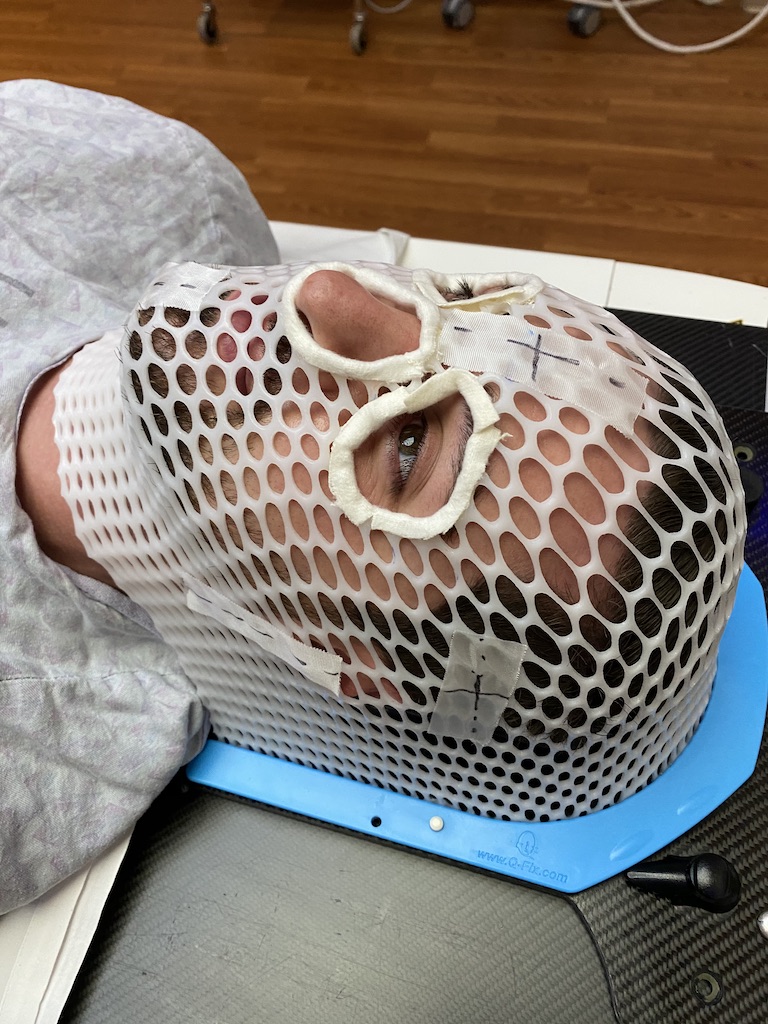Claustrophobia and Anxiety With Mask Use for Radiation Therapy
If you are receiving radiation therapy for head and neck cancer, brain cancer, or brain metastases, then you will likely need to get a thermoplastic mask made for your treatment. The mask is worn every day for treatment, and it is made of a plastic material that looks like mesh.
It is common that masks may make you feel claustrophobic (fear of confined or small places), scared, or anxious. Talk with your care team about your concerns. Having a plan to tolerate your mask can help you avoid delays in your treatment.
What can I do to help ease my anxiety?
Practicing general relaxation techniques can be helpful:
- Mindful meditation.
- Picturing yourself in a “happy place”.
- Controlled breathing - slow deep breaths.
Tips that may help ease your anxiety during the simulation process include:
- Ask questions about the mask-making process. Ask for an article about them that you can read before your appointment.
- Let your care team know before they make the mask if you have experienced trauma in the past involving a face or head covering.
- Ask to see a mask after it has been molded, so you know what to expect.
- Make sure you are in a comfortable position before the mask is placed over your head. If you are not, tell the therapists so they can adjust your position.
- Ask the therapists to talk to you while they mold your mask. They can explain step-by-step what they are doing or, if you’d rather it be quiet, you can ask them not to explain what they are doing.
Tips that may help ease your anxiety during the treatment process include asking:
- About the possibility of seeing the treatment room before you start treatment so you can see how the mask is going to be clipped to the table.
- The best way to talk with the therapists once the mask is on.
- The therapists to give you updates during the treatment, so you know what is going on.
- If you can keep your eyes closed during treatment.
- For relaxing music to be played and the lights be dimmed to create a calming space.
What can my team do to help ease my anxiety?
In some cases, the therapists can remove the part of the mask that covers your eyes or nose to make the mask more comfortable. This may not always be possible depending on the area of your head or neck that is being treated. If appropriate, anti-anxiety medications can also be provided. If given medications, you may not be able to drive. You will need someone to take you home.
It is the job of your care team to explain the mask-making process to you and ensure that you are prepared, but that is not always the case. Claustrophobia or anxiety may get overlooked even though it is an essential part of the treatment. It is important to remember that it is normal to feel anxious or claustrophobic and to talk about this with your care team before you start treatment.

